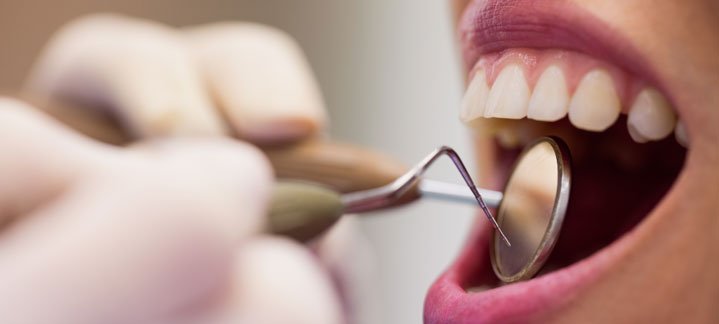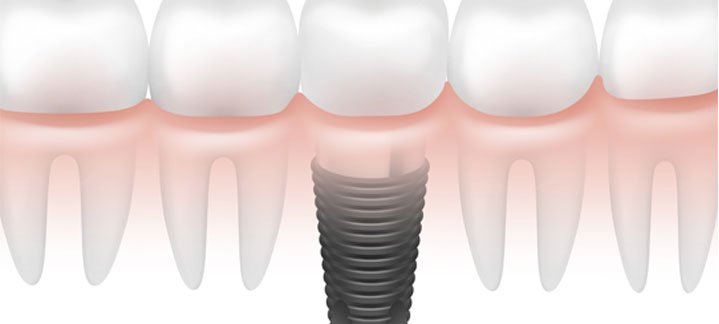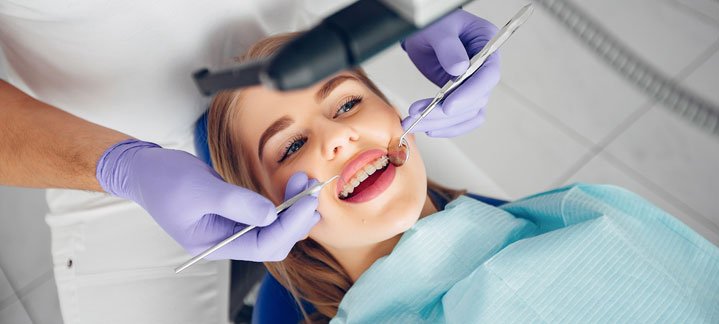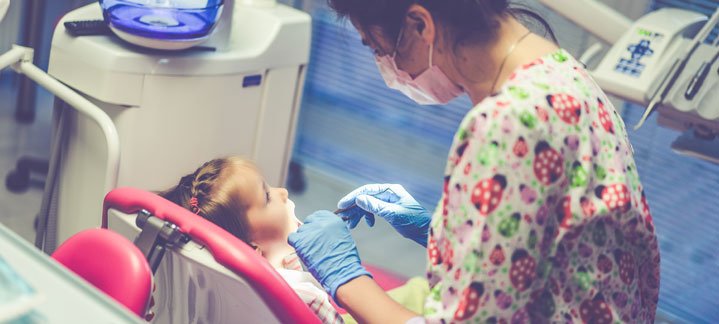
General Dentistry














The Mistry Way
At Mistry Clinic, we provide each patient with a treatment plan based on the results of your routine exam. Your personal treatment plan is a road map to your dental health. It lists any details of treatments required and the prices involved. All of pricing inside and outside of general dentistry is transparent and honest.
We want our patients to know exactly what they need to plan for financially. If you are dedicated and visit your dentist regularly, you can enjoy exceptional dental health.
Dentures

A smile just isn’t a smile when teeth are missing. Gaps from missing teeth create a host of problems including difficulty in eating, speaking and jawbone deterioration – as well as embarrassment and self-esteem issues. Modern advances in dental technology make it possible to completely restore your smile, whether you have lost one or many teeth.
A DENTURE is a removable replacement for missing teeth.
Teeth can be lost due to a variety of reasons like decay, gum disease, injury, neglect and certain medical conditions.
The face gets a sunken and collapsed appearance as the cheeks and lips have no support from inside. This results in an “old and aging ” appearance and is often accompanied by loss of self-esteem.
Replacement of teeth with Dentures can help reverse these conditions. Dentures enable a person to eat better, look better and thus restore the quality of their life. They fill out the appearance of your face and profile and can be made to closely resemble your natural teeth. In some cases, Dentures may even improve the look of your smile!
A denture can be a PARTIAL Denture, made to restore a single tooth or several teeth. Or it can be a COMPLETE denture where in all the teeth are replaced. Our complete dentures are made of an acrylic material, custom molded to adapt to your gums and support the teeth.
Type of dentures
Dentures can be of the following types
Immediate dentures are inserted immediately after the removal of the teeth. The advantage of this is that you do not have to be without teeth during the healing period. To make this possible, we take impressions of your jaws before all your teeth are extracted. However, bones and gums shrink in the first six months following the removal of teeth which makes the immediate dentures loose and they then need to be changed.
Conventional dentures are made after all the teeth have been removed and the tissues have healed. The healing may take several months during which time you will have your immediate dentures.
Overdentures In some cases we may decide to save some of your teeth. These teeth are prepared and your dentures are made to fit over them. Saving some of the teeth within the jaw bone helps us in preserving your jawbone and slow down its’ recession. This results in greater support to the denture and makes it more stable.
Implant Supported Dentures As the name suggests, these dentures are supported and attached to implants. For all those who don’t know, a regular denture rests on the gums, and is not supported by implants. Dental implants are small titanium posts securely anchored into the jawbone. A denture which is supported by an implant or attached to an implant is very firm, does not move and is far more comfortable than a conventional denture. With implant supported dentures you need not worry about your denture slipping or shifting. Your teeth look and function just like beautiful, straight, natural teeth allowing you to eat with greater satisfaction, speak with greater clarity and smile with greater confidence.
Why choose Mistrys Advanced Dentistry for your Dentures?
Making a decision regarding the restoration of a smile can be difficult for many patients. They seek the guidance, support and professional help of someone who understands what they are going through. At Dr Mistry’s Advanced Dentistry, our goal is to make you a denture that is as comfortable as possible to help you eat, speak and smile with ease. We are committed to using the best materials, techniques and technology to ensure that your dentures fit your mouth and gums properly. We spend time and attention on the arrangement of the teeth so that they look natural and suit your face.
As always, we are committed to providing our patients with all the information they need and we work with them to ensure that they get the best possible restorative option for their case.
Periodontics and Gum Disease

Wisdom Teeth And Extraction

Molars – These are the teeth we need to chew our food with. We have 3 sets of molars in our permanent dentition, called the first, second and third molars. These erupt at ages 6, 12 and 18 respectively.
Like the name suggests, wisdom teeth or our third molars erupt at the age of 18, when we enter our adulthood. These are the last teeth to erupt in our mouth.
For some people they erupt uneventfully and they don’t even realize that their wisdom teeth have erupted, but for most of us, it erupts causing pain or pressure or sensitivity in the back region of the mouth.
On taking a full mouth 2D xray (orthopantomogram / OPG), we can check for the position of the wisdom teeth, if they look like they have enough space to erupt in the bone, whether their growth is hindered by the cheeks, muscles, gums or other teeth, or approximately when they would erupt, if all the other parameters are ok. But in 70- 80% of the population the growth or eruption of the wisdom teeth is hindered. At that point we advise our patients for extraction of the teeth that are not needed, to protect the ones we need (the second molars)
In some cases, when we need a more detailed view of certain nerves and vessels, we advise for a 3D image also known as a CBCT (cone beam computed tomography). This gives us all the information we require for the diagnosis.
Did you know?
Due to evolution, Some scientists believe that as the human brain grew bigger over time, the jaw got smaller to accommodate for space. Smaller jaws mean there isn’t always enough room in the mouth for all the teeth we’re supposed to have, i.e. the third molars/ wisdom teeth
Why choose us?
We at mistry clinic, do a detailed examination intra-orally and radiographically. We then recommend the best treatment plan for you. Our oral surgeon, is the Head Of Department of a very prestigious dental institute. He has done rigorous training and has more than 30 years of experience in doing this complex procedure.
We are very careful about the different blood vessels and nerves around the area of your wisdom teeth and take all necessary precautions to keep them safe.
Dental Crowns and Bridges

In the world of cosmetic dentistry, dental crowns are among one of the most popular options for teeth restorations. They not only help restore teeth which are decayed or broken, they aid in restoring the aesthetics and health of your smile.
What Are Dental Crowns?
Dental crowns are custom-made tooth restorations that are created to fit perfectly over teeth that have become damaged or weakened to protect them from further breakdown. They provide a long-term solution to damaged teeth by stopping the spread of bacteria or decay, along with protecting the rest of your mouth, teeth, and gums from damage. They are made to look and function just like a normal, healthy tooth would.
Indications :
ndications :
A dental crown is indicated in the following situations :
A tooth which has been weakened by a very large cavity or decayed lesion, often will not have much healthy tooth structure left. As a result there may not be enough tooth structure to support a filling. These cases are best treated with a crown in order to minimise the risk of the tooth breaking or cracking.
Some teeth may have cracks formed in them or get chipped and broken due to the presence of old fillings, wear and tear or even from grinding teeth together. A crown would restore the broken tooth and protect the tooth by preventing the crack from spreading further.
Teeth which have been worn down severely from pressure or from acidity and acidic foods, need to be built back up to provide a proper bite as well as restore their appearance.
Teeth which have been Endodontically treated ie teeth which have had root canal treatments done, may require a crown to prevent it from breaking.
DENTAL BRIDGES
A dental bridge is used to replace one or more missing teeth. Teeth may be missing due to decay, fractures, injury or accidents, gum disease, or could even be missing congenitally.
The loss of teeth can affect the appearance of your smile, your ability to eat and chew, your speech and the support of your facial structures. If teeth are missing for a long period of time, the other teeth around may start to shift and thus affect the alignment of the remaining teeth.
To replace a missing tooth with an artificial one we may recommend a bridge.
Here the replacement tooth is suspended by crowns made on teeth on either side of the missing tooth. These crowns are firmly bonded to the teeth and the new tooth is suspended between them filling the gap.
So when would you need a crown or a bridge?
- To protect a weak tooth (for instance, from decay) from breaking
- To restore an already broken tooth or a tooth that has been severely worn down
- To hold together parts of a cracked tooth
- To Restore an Endodontic treated (root canal) tooth
- To cover and support a tooth with a large filling when there isn’t a lot of tooth structure left
- To cover a dental implant
- To make a cosmetic modification
- To replace missing tooth/teeth
Why choose Dr Mistry’s Advanced Dentistry for your Crowns and Bridges?
How your crowns appear when complete is based in large part on the skill and artistry of your cosmetic dentist. The correct colour and shape of the crown is exceptionally important as it needs to perfectly blend with your natural teeth.
Dr Saiesha Mistry is in the top one percent of dental practitioners in the nation in her level of education and training. As a cosmetic dentist, she has an artist’s eye to correctly match colour so your new tooth perfectly blends, looks, and feels natural and stable.
At Dr Mistry’s Advanced Dentistry we use the highest quality materials, the latest technology, state of the art Dental Laboratories and the most qualified and talented Ceramists to make our crowns and bridges.
Crowns and Bridges can be made from many different materials. We select the material for a patient based on each case individually, as every patient’s teeth are unique to them. We select our materials to best suit the appearance of your teeth and the strength of your bite. We pride ourselves that our crowns are not only durable and strong but perfectly match the shape and shade of your teeth.
Root Canals

Is Root-Canal Treatment Painful?
The Root Canal Treatment is pain-free – we will anaesthetise the tooth and surrounding areas before we do any treatment on the tooth. People often associate Root Canal Treatment with pain because the infection that causes the toothache can indeed be very painful. Root Canal Treatment to a tooth actually brings great relief to those symptoms, our patients are always glad once the initial phase of a Root Canal has been completed because they can get back to their day-to-day life. They have often been in such pain that they cannot sleep, eat or work! We won’t start working on your tooth until we are sure that we have it totally anaesthetised.
What is Root Canal Treatment?
Root canal treatment is where the nerve within a tooth is removed, cleaned and filled, usually because of infection of the nerve with bacteria. Patients who have deep decay in their teeth, deep fillings or cracks are at risk of having the nerve within the tooth infected with bacteria, this usually leads to a toothache which is often the first sign of an issue with the tooth. This is why regular check-ups are important! Once the nerve is infected the body has a very limited ability to fight off this infection and it usually causes a great deal of pain. If your tooth has been quite painful and aching or throbbing, you should consult with us to see what may be required.
What Are Some Signs I May Need Root Canal Treatment?
Aching/throbbing pain which is unprovoked or when provoked by cold lasts for minutes or more. Often this pain leaves patients unable to sleep.
Pain on biting, usually combined with other symptoms
You know you have deep decay or a deep filling in the suspect tooth.
Pain to heat, such as tea/coffee, which lasts for more than 10 secs.
Recent trauma to the affected tooth. These teeth may discolour in the days or weeks after the incident
If you suspect you have a toothache or need a root please consult with us.
Why choose The Mistry Clinic for Root Canal treatments?
- Absolutely painless and extremely comfortable.
- Generally completed in a single sitting of 30 minutes.
- Performed by experienced endodontists who exclusively practice root canals. (endodontists are dentists who further specialize in the root canal treatment).
- Performed under total isolation of the tooth.
Fun Fact!
Cavities don’t always have to be extreme and can actually be prevented if you visit us every six months.
Children’s & Pediatric Dentistry

PEDIATRIC AND PREVENTIVE DENTISTRY
Make this section colourful and add pictures
We at Mistry Dental love little smiles, and they love visiting us! We cater to the needs of infants, children, teenagers, and those with special needs. Our specialty encompasses areas of oral hygiene and maintenance, growth and development, preventive and restorative dentistry, space management, oral surgery, and emergency dental services for patients.
In a warm and nurturing environment we strive to deliver the highest possible level of individualized pediatric dental care through a fun, friendly and interactive dental session. With books to read and toys to play with in our waiting room, movies to watch throughout their visit and awesome prizes for all of our champs, our patients are always excited to come back for their next dental visit.
Your Child’s First Visit
Your child’s first dental visit should be scheduled around their first birthday. One of the most important reasons for this visit is to familiarize your child with the dental office environment and to ease any anxiety associated with future visits. On this first visit, a gentle but thorough examination will be performed to monitor growth and development and address any problem areas. Early examination provides your child with preventive dental care while establishing healthy dental habits at an early age. Ensure that your child’s future smile is a healthy, confident one.
How do I prevent CAVITIES?
Good oral hygiene removes bacteria and the leftover food particles that combine to create cavities.Starting at birth, clean your child’s gums with a soft cloth and water to wipe the plaque from teeth and gums. Avoid putting your child to bed with a bottle filled with anything other than water.
PREVENTIVE DENTISTRY
Sealants
A sealant is a tooth-colored material that is applied to the chewing surfaces (grooves) of the back teeth, where 4-out-of-5 cavities are found in children. This sealant acts as a barrier to food, plaque and acid, protecting decay-prone areas of the teeth. Sealants have been used for many years to help prevent biting surface cavities. No numbing is necessary.
Fluoride Varnish
Fluoride treatment helps to strengthen teeth against decay. Fluoride treatments are typically recommended every 6 months to help strengthen any weak areas of the teeth and help prevent cavities.
Mouth Guard
Injuries can occur when a child begins to participate in recreational activities and organized sports like cricket, football, basketball.
Custom made mouthguards can be fabricated for your child. In addition to preventing injuries to teeth, they help prevent brain injuries and trauma to the gums, jaws, and surrounding tissues.
RESTORATIVE DENTISTRY
Tooth Fillings:
Cavities and repaired with tooth colored fillings to prevent further progression of decay and to protect the integrity of the tooth.
Crowns:
Both Zirconia and stainless steel crowns in case decay involves more than one surface of the tooth.
SPACE MANAGEMENT :
Milk teeth are very important to hold the bone and create a pathway for the permanent teeth to erupt correctly. If milk teeth are lost prematurely its Space should be maintained to ensure uninterrupted eruption of the permanent tooth, failing which crowding occurs and the natural tooth alignment is hampered to a great extent. We believe in and deliver Space Maintainers wherever required pertaining to the individual child’s needs.
A space maintainer is an appliance that is custom-made in acrylic or metal material. It can be either removable or cemented in a child’s mouth. Its purpose is to keep the space open to allow the permanent tooth to erupt and come into place.
ROOT CANALS:
If tooth decay begins to involve the nerves, the child will start complaining of pain. Such teeth are routinely treated with a root canal followed by a crown. ( The material used in root is compatible with the child’s tooth and dissolves along with the tooth with age.) – delete if too confusing
ORAL SURGERY:
Teeth removal is done when needed. We will extract primary and permanent teeth when needed.
EMERGENCY SERVICES
We also provide support for trauma involving the mouth including avulsed (knocked out), loosened and fractured teeth.
We are confident that you and your children will feel right at home in our caring, comfortable, and friendly office. Come visit us and make it your child’s ‘Dental Home’
The Mistry Smile Community
Natasha Bharucha
Rushad Irani
Jeh Shroff
Satya Agarwal
Namrata Asudani
Namrata Bangera
Avnish Mehra
Rahul Gidwani
Farzana Shroff
Russa Mehta
Kussh Rathi
Alex Kuruvilla
Jehan Sethna
Krashani Naidu
Roxan Patel
Rumi Talati
Colvyn Harris
First bridge, last rites and midtown memories
Leena Mukhi
Feroza Chavda
Avanne Dubash
Amish Tripathi
Nishita Patwardhan
Pamela O’leary
Kauser Jadwet
Neetu Watumal
Nehal Vyas
Kanishka Lohar
7 Dentist-Recommended Tips To Brighten Your Pearly Whites
Gift yourself a Virtual Consult with
Our Experts
You might be interested in

Digital Smile Design


